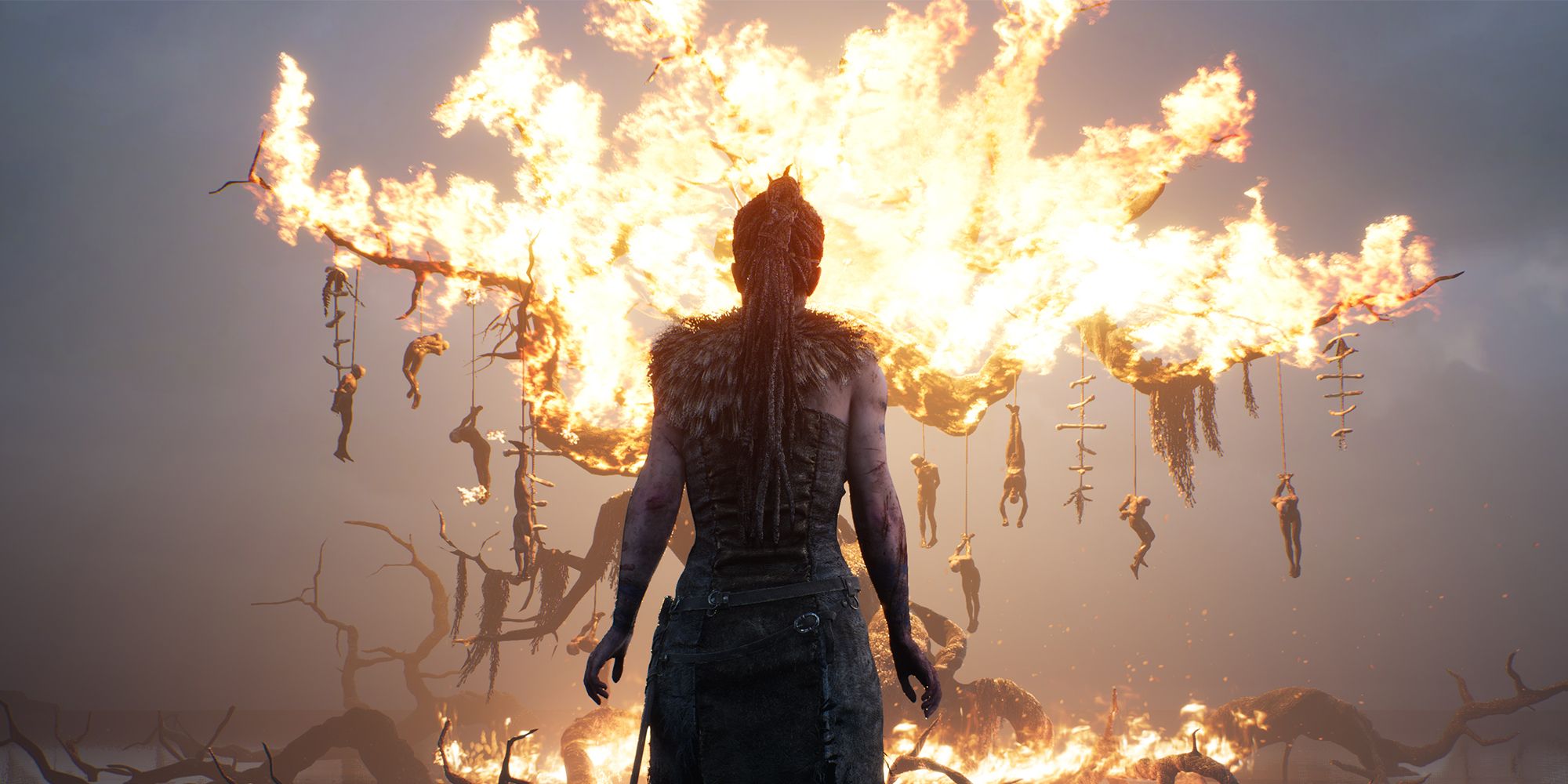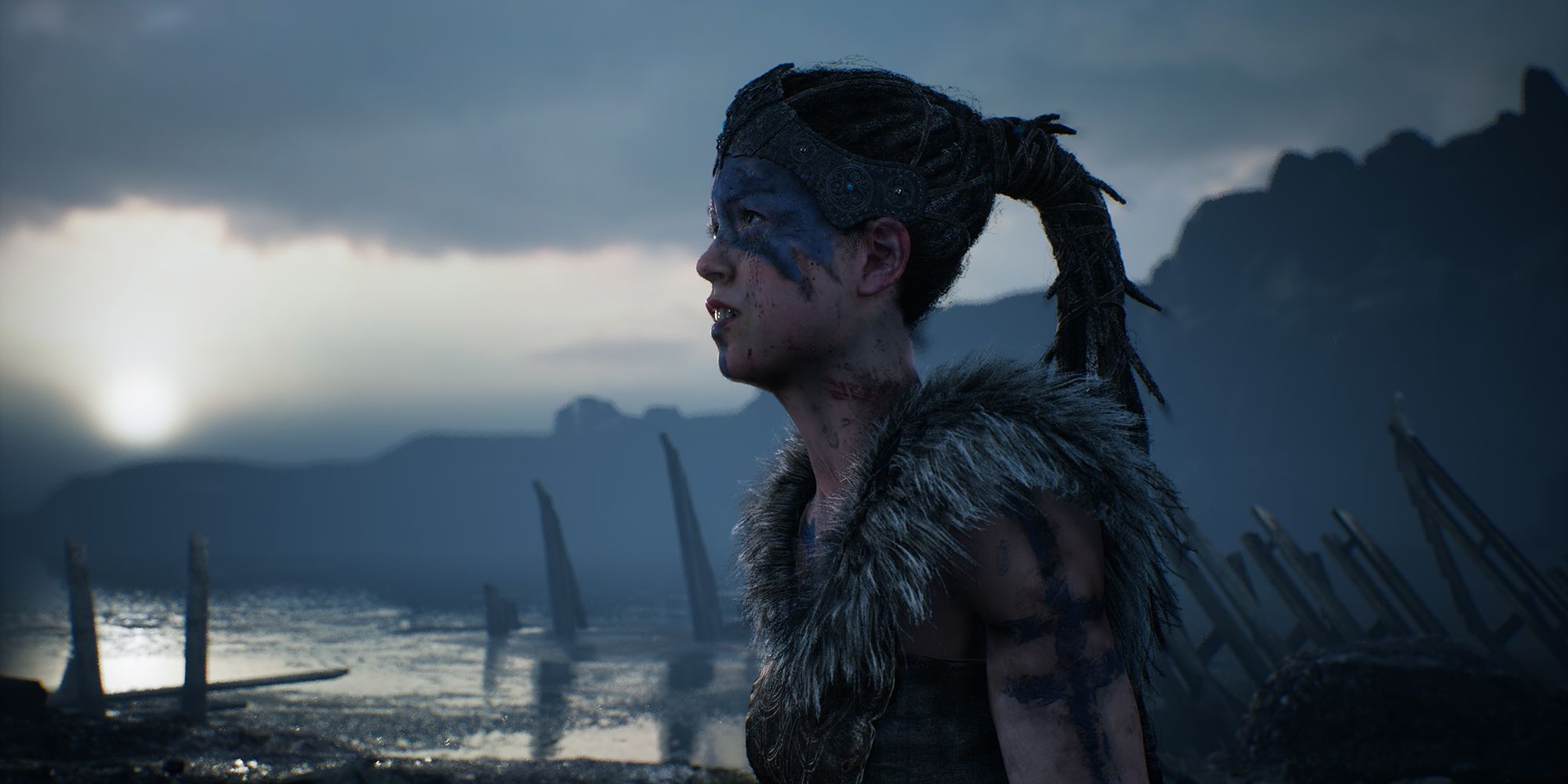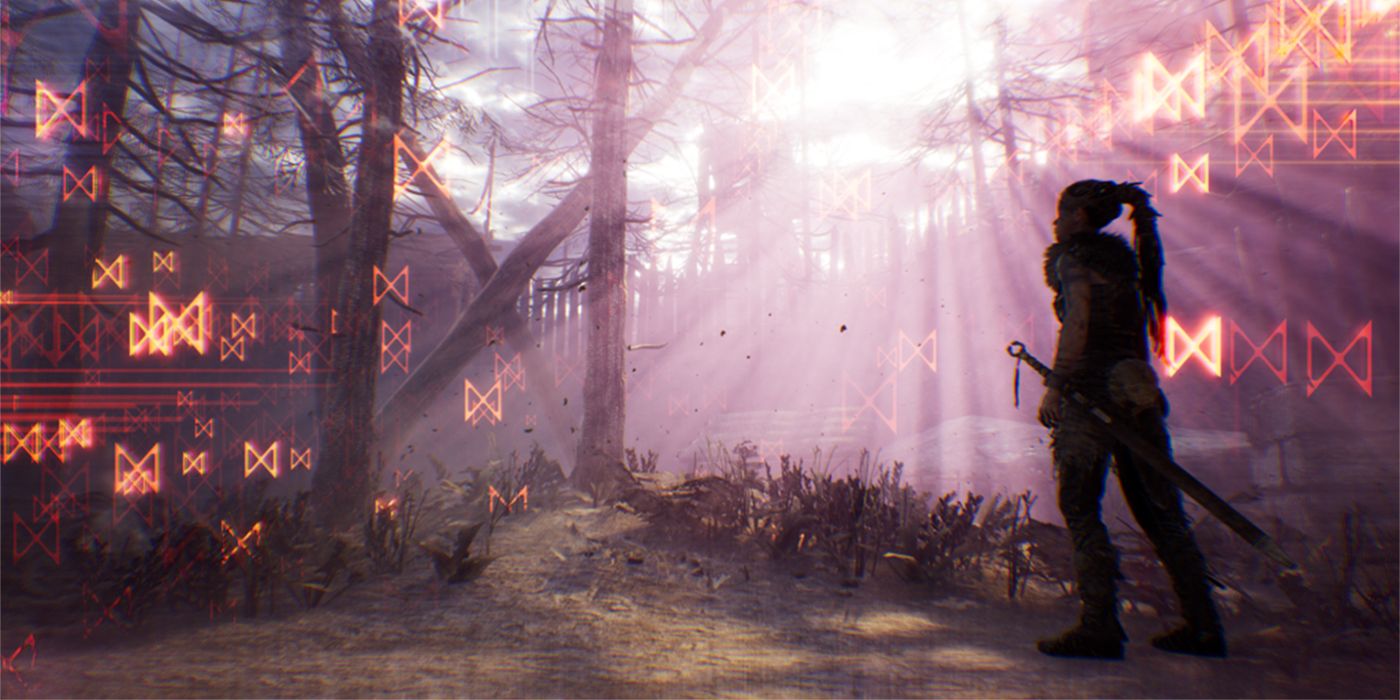May is Mental Health Awareness Month, and advocates of mental health awareness face the same challenge year-on-year. Sharing knowledge is easy, as is listing off statistics about mental health and mental illness. What's more difficult is building an understanding of what it means to have a mental health issue, since it's hard for outsiders to even recognise an invisible illness - let alone understand how it feels to live with one.
This is an area where media representation matters. Telling stories around mental health can break this barrier, allow disenfranchised or forgotten voices to have a place of their own, and explore themes of mental health in unique and compelling ways. It's here that Hellblade: Senua's Sacrifice truly excels, and although it's not perfect it provides an excellent blueprint for stories of mental illness in video games.
Developed by Ninja Theory, the BAFTA-winning Hellblade: Senua's Sacrifice revolves around the journey of Senua, a Pict who is trying to rescue her dead lover from the clutches of a foreign god, travelling into dangerous lands and fighting terrifying enemies along the way. It's a brutal, powerful game, and Ninja Theory took a gamble by eschewing the traditional publishing model to go it alone, allowing the studio to forge a narrative without external interference. The end result is not only a wonderful dark fantasy story well deserving of its stellar reviews, but also one that delves deep into mental illness.
In short, there is a heavy subtext of psychosis in Hellblade. Throughout the game, Senua will have auditory and visual hallucinations, whether the curse of 'the Darkness' that pursues her or the voices of the Furies that narrate her choices. As a metaphor for mental illness, Hellblade makes players question exactly how much of what they are seeing is real, and whether the title's supernatural overtones are instead all in Senua's mind.
Importantly, Ninja Theory backed this up by developing Hellblade in line with mental health professionals and those who live with psychosis. Included in this were professors from the University of Cambridge and the University of Durham, as well as the integral aid of The Wellcome Trust, in order to portray psychosis in as accurate a way as possible. A final build of Hellblade was also shared with those involved in this process before release, and the game's website even links off for mental health support.
Other games looking to emulate the Hellblade model could do well to learn this lesson. Ninja Theory took care with its representation, avoiding the overly dramatic tone that video games can all-too-easily slip into when discussing complex topics. However, it's not just this external influence that makes Hellblade such an important game, with Ninja Theory splicing psychosis into the very gameplay.
Senua will see runes pointing her in the next direction to go, hear voices that are apparently guiding the way, and remember the words of mentor figure Druth that tell the history of her people and her own personal past. These moments are full of half-truths and outright lies, and even the game's core permadeath mechanic - should the player die enough times that 'the Darkness' takes hold then Senua's story will go back to the beginning - is a fabrication in itself. Hellblade is full of the unreliable, weaving together into this tapestry of isolation and paranoia.
Hellblade understands the medium of the video game, and the unique qualities that lie within. Unlike film, television, or literature, the interactive nature of gaming opens up whole new pathways in terms of representing the world. You can feel an approximation of what it means to live someone else's life, if only for a moment, and within it share viewpoints that otherwise would not have been possible. This is the key to why games are so immersive, yet it's rarely been explored to broach difficult subjects by major studios.
Ninja Theory was one of many studios acquired by Microsoft last year, and Microsoft's treatment of the developer will be interesting the follow. The protection offered by being a first party studio could allow Ninja Theory to continue pushing the envelope, or alternatively be an external influence that forces them into safer decisions. At the very least, Hellblade points the way forward for other games and mental health representation, regardless of Ninja Theory's next move.



